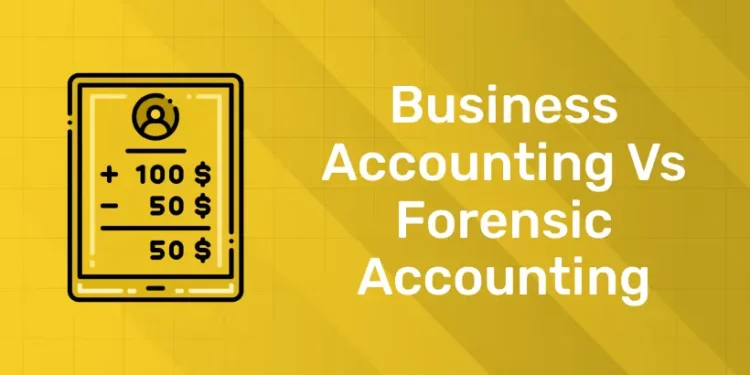Table of Contents
Every organization needs accounting because it provides essential financial data for regulatory compliance and decision-making. There are several different specialty areas within the accounting industry, including standard accounting and forensic accounting. Even though financial analysis is included in both, their objectives are distinct. This blog will cover the key differences between forensic accounting and business accounting, along with the related applications.
Unlock Your Accounting Potential – Enroll in Our Accounting Course!
Business Accounting
Business accounting, sometimes referred to as “accrual basis” accounting, determines your profits based on the date that invoices are sent or received, without taking into account whether or not cash was really received or spent. Instead, cash basis accounting examines when money was received or spent rather than through bills. Nearly all solo traders use it since it is significantly more simple.
Forensic Accounting
The field of forensic accounting employs investigative, auditing, and accounting techniques to analyze a person’s or company’s financial records. CPAs who specialize in forensic accounting typically work for insurance firms, banks, and law enforcement. They are also known as evidence investigators. In addition to frequently testifying as expert witnesses in court, forensic accountants examine financial documents and accounts that might be used as evidence. In court, they might work on instances involving embezzlement and fraud and describe what constitutes a financial crime.
Become an Accounting Pro – Learn from Industry Experts!
Key Differences Between Business Accounting And Forensic Accounting
Business Accounting |
Forensic Accounting |
| Bookkeeping, tax laws, compliance standards, and financial reporting are all necessary for traditional accounting. Keeping correct records, putting accounting concepts into practice, and guaranteeing financial transparency are the major priorities for accountants. | Additional abilities including data analysis, fraud identification, investigation tactics, litigation assistance, and the capacity to succinctly and clearly communicate complicated financial results are required for forensic accounting. Legal processes and operating inside a legal framework are two things that forensic accountants need to be quite knowledgeable about. |
| Accurate financial accounts are prepared by traditional accounting, which also gives trustworthy financial information to internal and external stakeholders. Encouraging decision-making, budgeting, and compliance are its primary objectives. | Finding fraudulent activity, unlawful activity, and inconsistencies in finances is the main goal of forensic accounting. To find information that can be utilized as evidence in court, it entails looking into and evaluating financial data. |
| Business accounting often follows a monthly, quarterly, or annual reporting cycle. It offers an overview of the state of the finances within a given time period, stressing profitability, trends, and overall financial stability. | Suspicions of financial malfeasance or particular incidents frequently serve as the catalyst for forensic accounting. In order to reconstruct events and spot fraudulent activity, a thorough review of financial data and transactions—often spanning several years—is required. |
Application Of Business Accounting
Business accounting is a vital tool for financial management, strategic planning, and governance. It helps companies meet their goals, minimize risks, and maximize performance. Some of the applications for business accounting are given below:
- Financial reporting
- Budgeting and Planning
- Tax compliance
- Decision making
- Performance evaluation
- Risk management
- Legal compliance
Unlock Your Accounting Potential – Enroll in Our Accounting Course!
Application Of Forensic Accounting
Applications of forensic accounting are widely used in insurance claims, negligence trials, and fraud investigations. One of the most frequent applications of forensic accounting is in an insurance claim. Determining the appropriate amount for a client to claim from the insurance company or insurer is necessary when filing an insurance claim. Some of the applications of Forensic accounting are given below:
- Fraud investigation
- Insurance claims investigation
- Asset tracing and recovery
- Dispute resolution
- Bankruptcy and Insolvency proceedings










